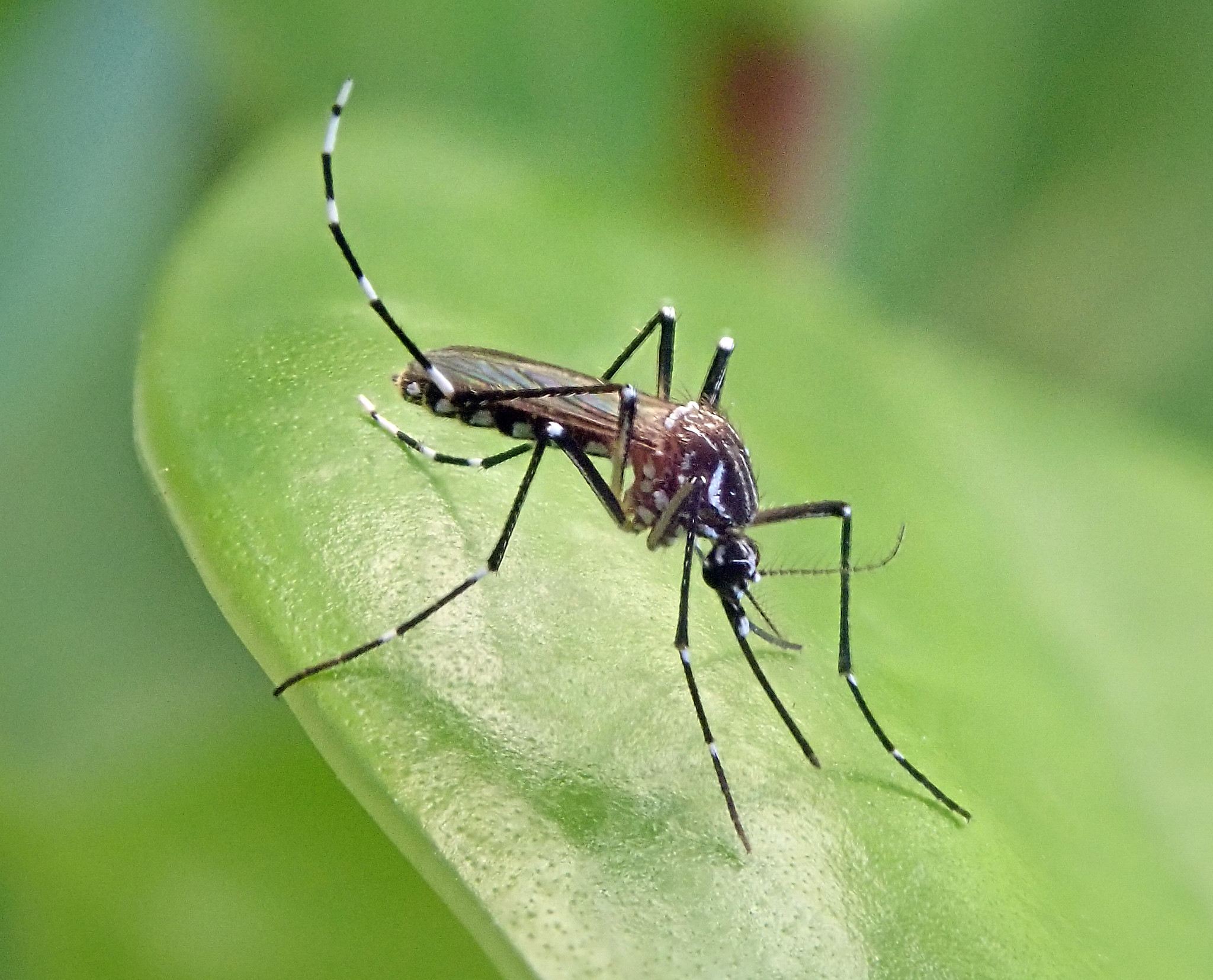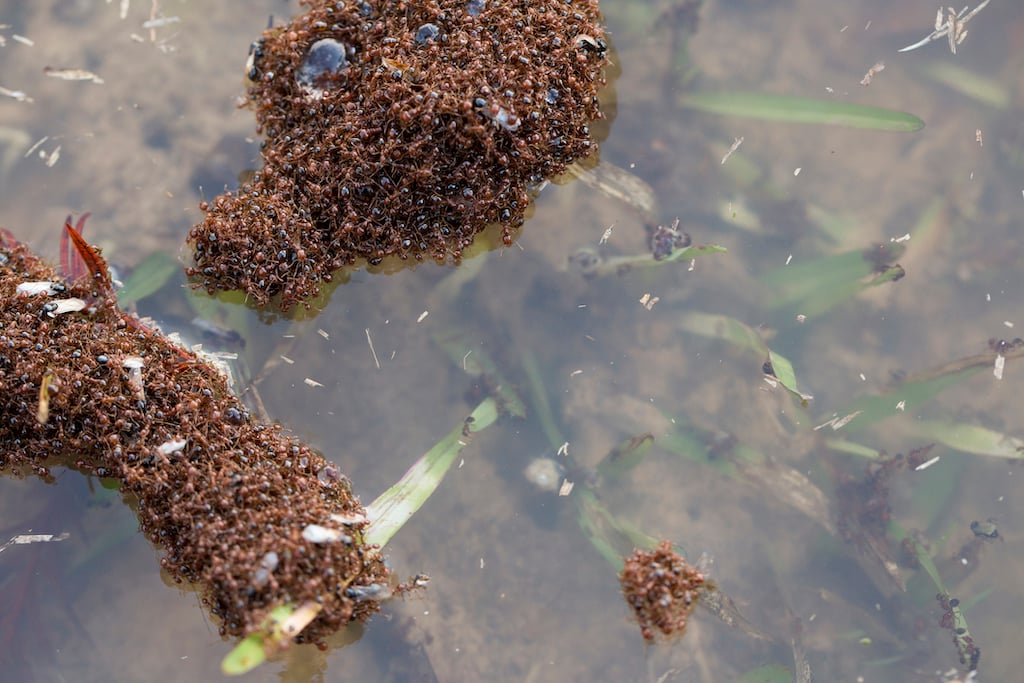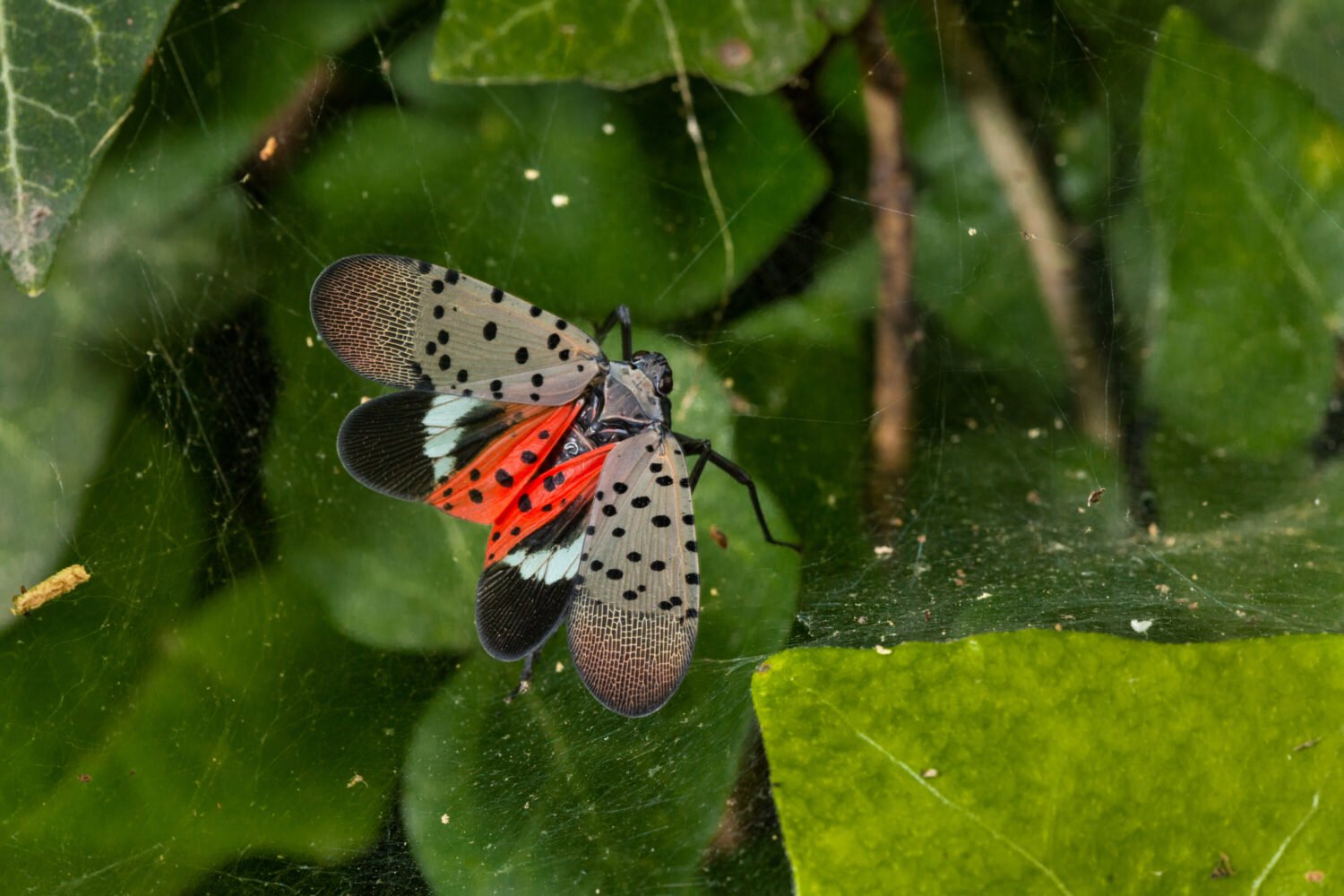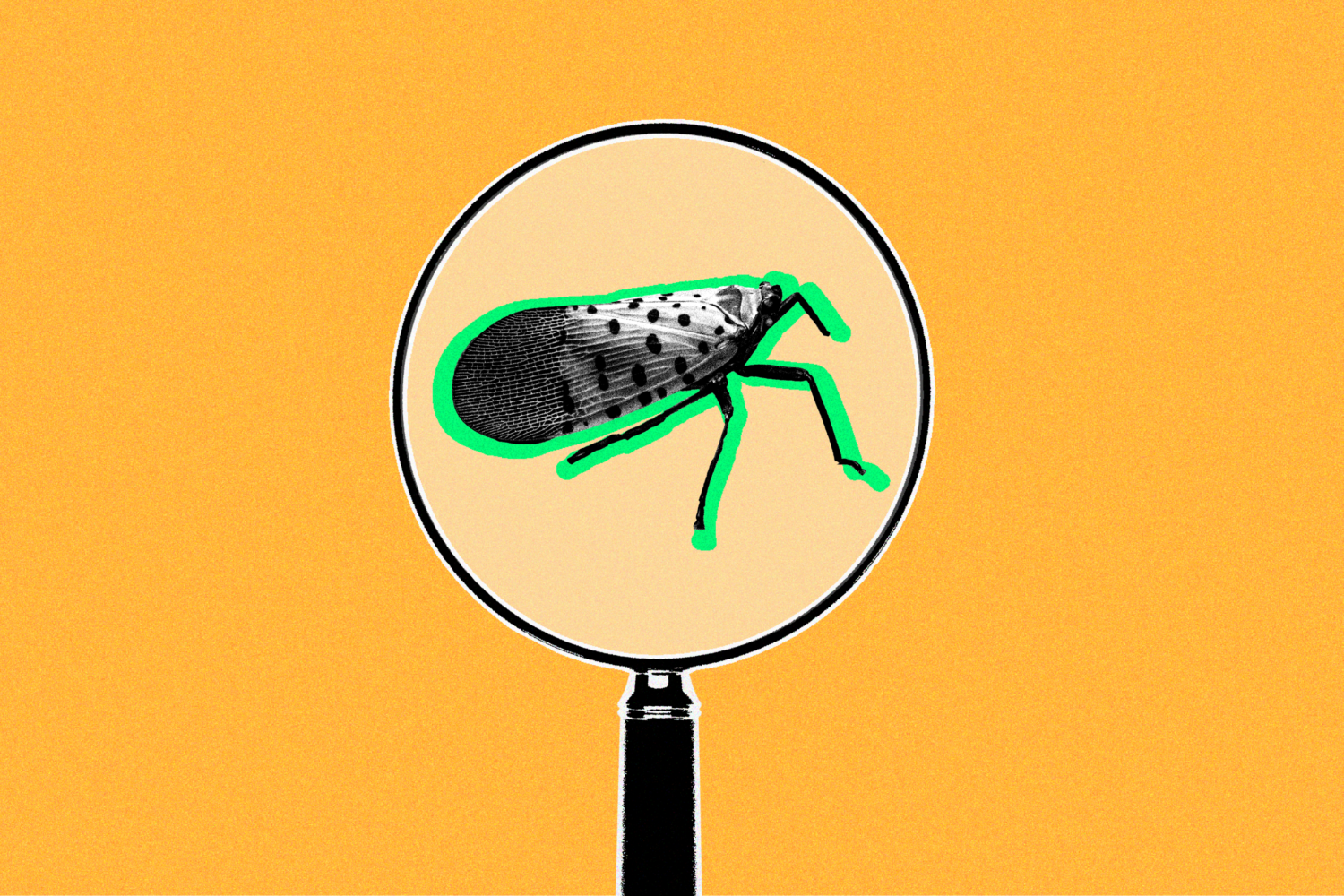It’s not in your head: Mosquito seasons are likely getting longer. In DC specifically, the annual number of mosquito-friendly days has increased by an average of 16 since 1979, according to a new report from Climate Central.
To be clear, the report’s scientists didn’t go out and tediously count mosquitoes—rather, they studied weather trends at 242 locations across the U.S. and counted the number of days considered suitable to the bloodsuckers, which thrive in warm and humid conditions.
Defining a mosquito-friendly day as that with an average relative humidity of 42 percent or higher and temperatures between 50 and 95°F, the report found that 173, or 71 percent, of the locations studied experienced an increase of mosquito days between 1979 and 2022. (As for those 61 U.S. locations that saw a decrease? According to the report, most of those were in the South, where summer temperatures above 95°F have become more frequent.)
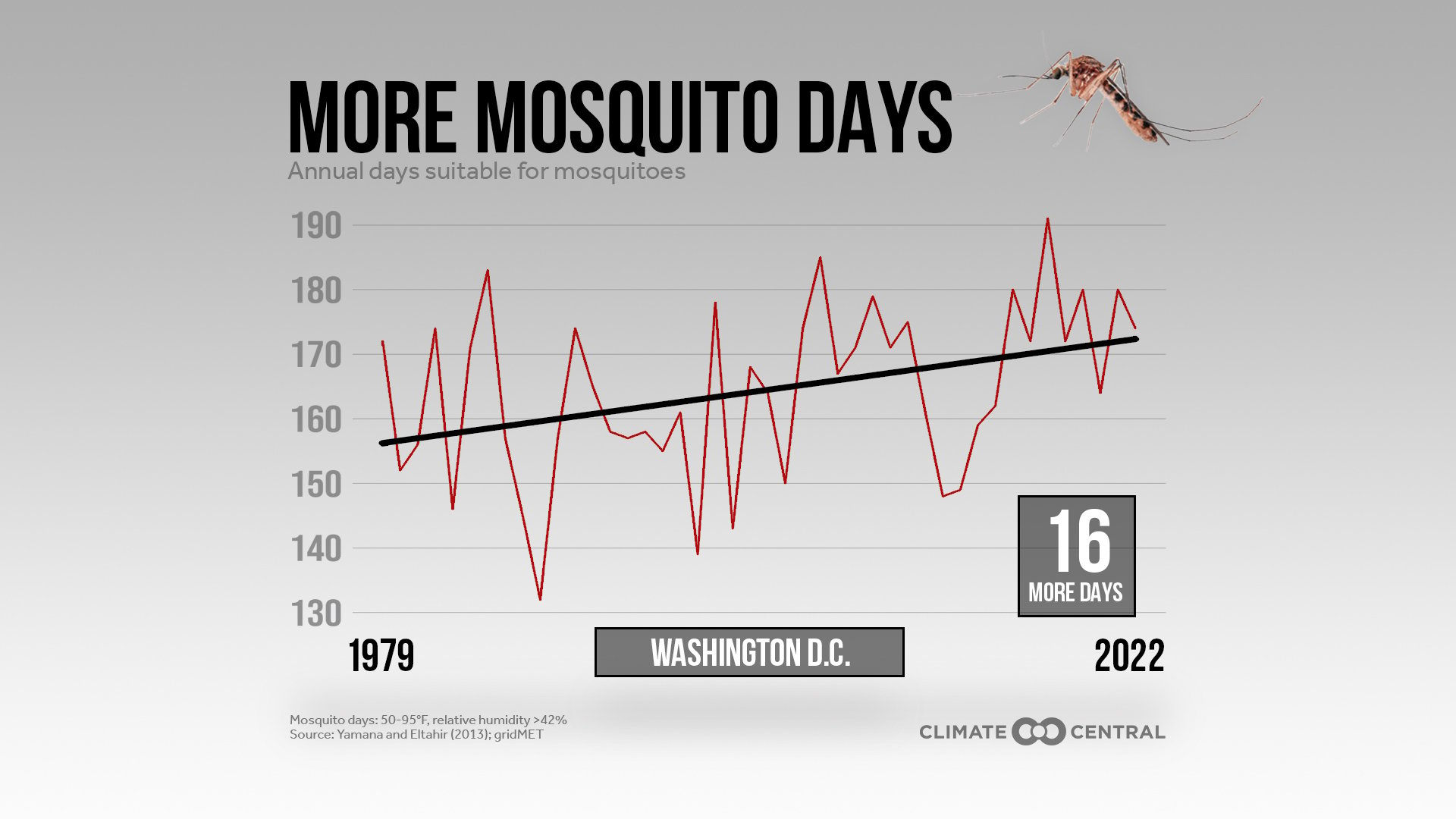
Surprisingly, though it may feel like it, DC wasn’t among the top ten cities with the steepest increase of mosquito days. Rather, that burden fell on Santa Maria and San Francisco, California, both of which saw the largest overall increase of 43 and 42 days, respectively. Meanwhile, our neighbors over in Hagerstown, Maryland, and Richmond, Virginia, saw similar increases to us: 17 days and 23 days, respectively.
Albeit annoying, most of the 200 species of mosquitoes in the U.S. are relatively harmless, says the report. In fact, compared to other insect-borne diseases, most of which come from ticks, mosquito-borne diseases are relatively uncommon in the U.S. In DC, there was just one case of West Nile virus—the most common mosquito-borne disease in the U.S.—reported to the CDC last year. Maryland had four cases and Virginia had five.
Still, there are ways you can protect yourself from the pesky bloodsuckers. Aside from your usual spritz of bug spray, remove any pools of stagnant water around your home, keep a floor fan on your porch when you’re sitting outside, and wear loose, long-sleeved clothing.

